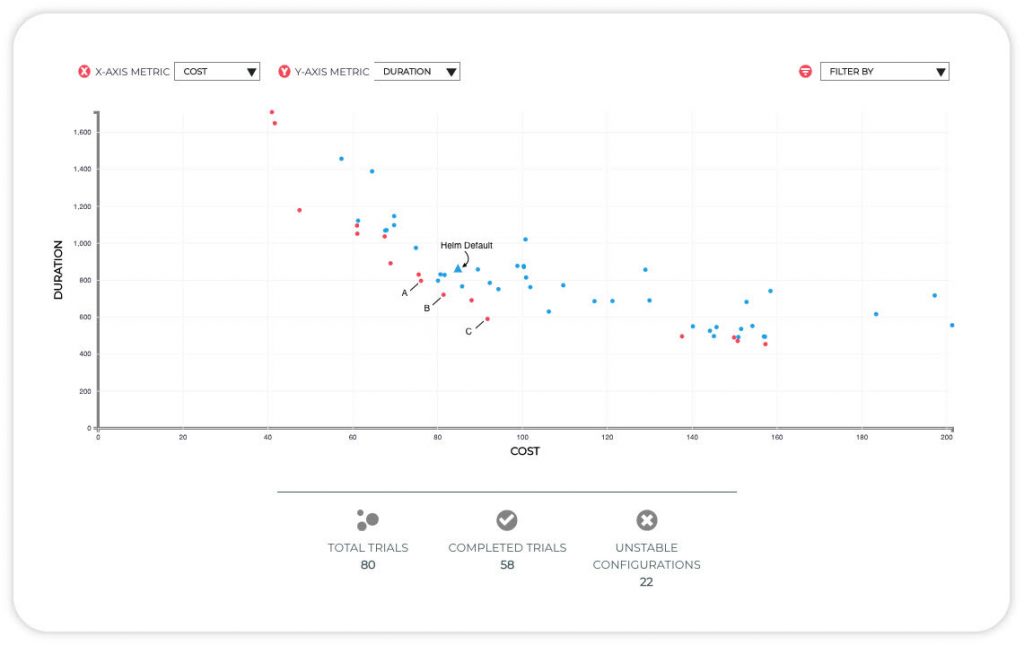Carbon Relay Extends AIOps Platform to Kubernetes HPA
Carbon Relay announced this week that its Red Sky platform for configuring and optimizing container applications using machine learning algorithms now also makes it possible to scale Kubernetes clusters more efficiently.
Company CTO Ofer Idan says Carbon Relay has extended the machine learning algorithms it developed for its IT operations platform based on artificial intelligence (AIOps) to now include support for the Kubernetes Horizontal Pod Autoscaler (HPA). That capability can be employed to ensure application performance is maintained consistently as applications scale or prevent the overprovisioning of infrastructure resources, he says.
The Red Sky platform is available in both open source and enterprise editions. The enterprise edition includes deep reinforcement learning capabilities to continually train the artificial intelligence (AI) agent, automatic Kubernetes application configuration, data sharing and advanced automation and scheduling capabilities. The core open source version provides access to a Red Sky Ops Kubernetes load balancer, controller, API services and authentication services. The free edition of Red Sky Ops provides access to a limited number of metrics, parameters and experiments per month.
Most IT teams today attempt to manually tune Kubernetes clusters, which usually results in overprovisioning in case an application needs to scale. Because of all the settings that IT teams are expected to master, optimizing Kubernetes can be a major challenge as the number of clusters being deployed scales out. Given that level of complexity, most IT teams are going to err on the side of overprovisioning rather than allowing application performance to degrade. Over time, however, the cost of all that additional Kubernetes infrastructure starts to add up.
In theory, at least, Kubernetes was designed to enable multiple applications to share the same cluster. In practice, many IT organizations wind up deploying a single application on a cluster because application owners tend to prefer to have their own dedicated cluster. However, with more IT teams under pressure than ever to reduce costs, Idan says the need for an AIOps platform to optimize Kubernetes clusters has become more pressing.
It’s unclear whether the complexity of Kubernetes will push IT teams toward embracing AIOps. There’s no doubt that as IT environments become more complex, the need to rely on machine learning algorithms to optimize the IT environment is becoming more pronounced. It’s simply not possible for human IT administrators to continuously tune a Kubernetes environment without relying more on algorithms.
Naturally, developing confidence in an AIOps platform takes some time. The scale at which any AIOps platform is automating IT operations can be an issue if something does go wrong. Most IT operations teams prefer to verify recommendations made by AIOps platforms. Over time, however, it also becomes apparent the AIOps platform is not only faster but it also becomes more accurate than its human administrator as machine learning algorithms continuously learn the environment. In fact, as AIOps continues to evolve, there will come a day when most IT teams wouldn’t dream of managing IT environments without it.





